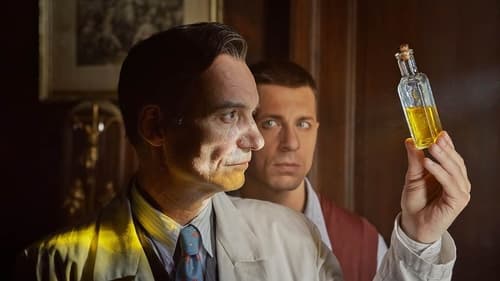
Editor
About Ela a rebellious artist struggling with the deep gray everyday life of Poland in the 1980's, including family problems and personal demons originating in bipolar disorder.

Editor
Nacido a principios del siglo XX, el herbolario Jan Mikolasek se hizo rico y famoso después de curar innumerables enfermedades con medios poco ortodoxos. Verdadero emblema de Checoslovaquia antes de la Segunda Guerra Mundial, el curandero se hizo aún más apreciado durante la ocupación nazi y el régimen comunista. Cada régimen aprecia su habilidad y lo protege. Pero, ¿cuánto le costará mantener su estatus en un nuevo cambio político?

Editor
The devil's magic quill keeps a tight record of sins. But when this precious artifact is stolen, a demon must find a way to make things right again.

Editor
Janina Duszejko, ex ingeniera, astróloga y vegetariana, vive en un pequeño pueblo en las montañas de Los Sudetes. Una noche, se encuentra un cadáver cerca de su casa. La víctima es un cazador furtivo que murió en extrañas circunstancias. Con el paso del tiempo, se encontrarán en la zona más cuerpos: todos de cazadores que, según Janina, han sido asesinados por animales salvajes. Tras un último descubrimiento, Janina se convertirá en principal sospechosa de la policía y el devenir de los eventos no dejará lugar a dudas a los agentes.

Editor
“The fact that I’m playing myself doesn’t mean that it’s me.” Four old schoolmates, today well-known Czech actors (Pavel Liška, Tomáš Matonoha, Josef Polášek and Marek Daniel), decide to make a movie together. Their ambitious colleague Jan Budař takes up directing duties and financing has arrived from Poland. What started out pleasantly enough, however, soon goes awry. Liška’s pronunciation difficulties, Daniel’s alter ego Havlát, and Matonoha’s financial machinations turn the shoot into a fight for survival. More than just a film about friendship and the absurdity of actors’ lives, director Marek Najbrt gives us a witty meditation on reality and illusion, and a unique take on the reality film genre. One of Pavel Liška’s on-set comments (“I didn’t know if I should act as if I were acting, or act as if I weren’t acting, or just not act at all”) illustrates the provocative nature of Najbrt’s subversive, quasi-documentary game.

Editor

Editor
Ice hockey is a Czech national obsession, and the country's victory over Russia in the 1969 World Championships, the year following the Soviet invasion, is a celebrated moment in its history. In Marek Najbrt's black comedy, the heroic exploits take place only on a black and white tv screen as a group of representative misfits gather and watch the game in a desolate village on the Czech border. While consisting of recognisable types, Najbrt's bleak portrait reveals a world of alcoholism, debt, racism, bigotry, and infidelity that trails behind the dreams of nationalism and bears little resemblance to the fantasies of the new consumerism. A clever and multi-levelled film, it provides a sharp antidote to the reconciliatory charms of the conventional Czech comedy.

Editor
Sympathetically modern for its time - it was 1937 - is the approach of a young factory director in the middle of a growing Bata-style town in the picturesque foothills of the majestic Tatra Mountains. But make no mistake, the protagonist is his wife Helena (Eliška Křenková). However, the determined gaze of the aspiring doctor, who is about to give birth soon, into her dream family future is suddenly overshadowed by the discovery of a dead body of a newborn baby in the courtyard of the pulsating factory. Helen's innate empathy, amplified by another condition, is not satisfied with a conspicuously quick solution to the mystery. A gripping detective drama with a progressive and deeply human take on a controversial subject not only just before the unsuspected war but decades later.






